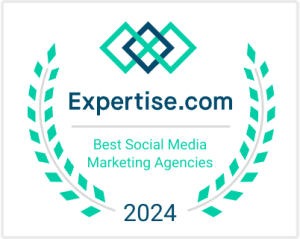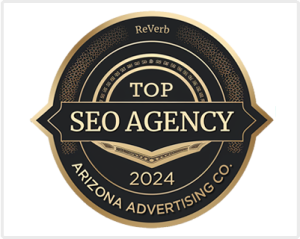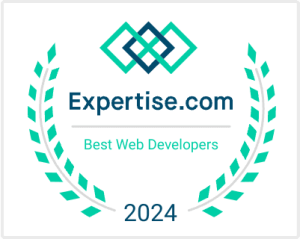
The Top Marketing Problems Facing Consulting Services in 2025
Read Time: 4 minutesHeading into 2025, the most critical marketing challenges facing the consulting industry aren’t the ones dominating headlines. Instead, these under-the-radar issues (largely overlooked but immensely important) are poised to shape the future of management, operations, and corporate consulting in ways few are discussing.
GUIDE: Ten Best 2025 Marketing Challenges Facing Consulting Services (Management, Operations, and Enterprise Consulting)
1. Deep Expertise Over Breadth: The “Generalist Trap”
![]()
- Problem: As consultancies scale, many firms offer broad solutions across industries and functions, aiming to be a one-stop-shop. However, clients increasingly require specialized, niche expertise due to the complexity of modern challenges in AI, sustainability, and regulatory compliance. Without deep industry knowledge, consulting firms struggle to differentiate themselves and deliver high-value results.
- Why It’s Overlooked: Marketing departments often prefer promoting breadth because it appeals to a larger client base, and the allure of being a “jack-of-all-trades” is easier to sell. Narrowing the focus to highlight specific expertise is seen as risky, potentially limiting the pool of prospective clients, despite the growing demand for depth over breadth.
2. The Trust Deficit from Over-Promising
![]()
- Problem: Consulting firms have aggressively marketed AI and automation as revolutionary solutions. However, many of these projects have underperformed, creating a trust deficit with clients who are now skeptical of inflated claims. This has led to a gap between what firms promise and what they can realistically deliver, making future sales of AI services more challenging.
- Why It’s Overlooked: AI and automation remain trendy, and firms are hesitant to temper their messaging for fear of losing ground in a highly competitive space. The market pressure to keep up with competitors and capitalize on the AI boom has prevented more cautious, realistic marketing that aligns with actual outcomes.
3. The Gap Between Environmental Talk and Action
![]()
- Problem: While many consulting firms have integrated sustainability and ESG into their marketing, there’s often a significant gap between what they promote and the real, measurable impact of their services. As regulations tighten and client scrutiny increases, this disconnect could harm credibility and client trust.
- Why It’s Overlooked: Sustainability is a popular trend, and marketing it has become somewhat obligatory. However, firms often prioritize surface-level messaging to appeal to socially conscious clients, without investing in substantive proof or verifiable case studies. This lack of depth is rarely questioned by clients upfront, allowing the issue to fly under the radar.
4. Crisis-Resilience Consulting: Overlooked but Critical
![]()
- Problem: Many consulting firms focus on growth and innovation, but neglect to market their ability to help clients build long-term resilience against crises—whether they be economic, geopolitical, or operational. While firms offer reactive crisis management services, they often fail to emphasize proactive strategies for crisis prevention and resilience.
- Why It’s Overlooked: Marketing for growth and innovation grabs attention more easily than the more defensive, stability-focused services like resilience planning. Additionally, crisis resilience is often seen as relevant only in times of global disruption, rather than as a constant strategic need, which makes it less of a marketing priority.
5. Client-Consultant Collaboration Tools as a Differentiator
![]()
- Problem: Despite advances in collaboration technologies, many consulting firms still use outdated communication and project management systems. Clients expect real-time updates, transparency, and seamless collaboration, yet consulting firms often fail to market the use of cutting-edge tools that could enhance the client-consultant relationship.
- Why It’s Overlooked: Collaboration tools are often seen as operational rather than marketing differentiators. Firms may consider this too “back-office” or assume clients don’t prioritize the tools used, focusing marketing efforts instead on strategic insights rather than the process and efficiency improvements that better technology can offer.
6. Client Education and Strategic Alignment: The Knowledge Gap
![]()
- Problem: Clients increasingly expect consulting engagements to include education and internal alignment, ensuring that the client’s team can carry forward the changes after the consultants leave. Many firms, however, focus only on delivering high-level strategic solutions without a robust plan for knowledge transfer, leaving the client ill-equipped to sustain progress.
- Why It’s Overlooked: Consulting firms often prioritize short-term wins and immediate client outcomes in their marketing, sidelining the deeper, long-term value of education and capability-building. This is further compounded by a perception that detailed education is “part of the job” and doesn’t need to be highlighted in marketing.
7. The Oversaturation of Thought Leadership Content
![]()
- Problem: Consulting firms have flooded the market with thought leadership content—white papers, webinars, articles—making it difficult to stand out. Much of this content is repetitive and fails to provide new, actionable insights, leading clients to tune out.
- Why It’s Overlooked: Thought leadership has become a default marketing tactic in consulting, and the pressure to produce frequent content often outweighs the need for originality. Firms focus on volume over quality because it’s easier to measure output than to ensure deep, differentiated insights, and there’s little immediate pushback from clients on content quality.
8. Navigating Regionalization in a Globalized Market
![]()
- Problem: Many global consulting firms apply uniform marketing strategies, failing to account for regional differences in regulations, market dynamics, and cultural nuances. As geopolitical and regional complexities increase, clients are looking for consulting partners that understand local markets on a granular level, but marketing often glosses over this need for regional expertise.
- Why It’s Overlooked: Consistency in global branding often takes precedence over localized messaging. Marketing teams may view regional differentiation as complicating their overall brand strategy, and the subtleties of local regulations and business environments are often not considered compelling marketing points, even though they are crucial to clients.
9. Consulting Fatigue: Differentiating in a Crowded Field
![]()
- Problem: Clients are increasingly suffering from “consulting fatigue”—having worked with multiple firms over time without seeing lasting results. As a result, potential clients are becoming skeptical of the real impact of consulting services, leading to slower sales cycles and more difficulty in winning new business.
- Why It’s Overlooked: Many firms are aware of the fatigue but struggle to address it effectively. The default marketing approach is to showcase credentials and case studies, but few firms proactively tackle the issue of underperformance or skepticism in their messaging. It’s easier to sell success stories than to directly address doubts about long-term value.
10. Demonstrating ROI Beyond Cost-Cutting
![]()
- Problem: A significant portion of consulting firms still market their value in terms of cost-cutting and operational efficiencies, even though many clients are shifting focus towards innovation, digital transformation, and long-term growth. This creates a mismatch between client priorities and what firms are selling.
- Why It’s Overlooked: Cost-cutting is a familiar, easily quantifiable selling point, and many firms feel safe marketing services in terms of immediate financial savings. Shifting the narrative to long-term growth, innovation, or intangible benefits (like culture change) requires more sophisticated messaging and a deeper understanding of the client’s evolving goals, which some marketing teams struggle to execute effectively.
Get Help Tackling 2025 Consulting Services Marketing Challenges
In 2025, marketing leaders in consulting services will confront a rapidly shifting landscape marked by overlooked challenges such as deep expertise demands, client fatigue, and the growing trust deficit from over-promised solutions like AI and automation.
Though often under the radar, these issues will require immediate attention and strategic foresight to stay competitive and relevant.
Addressing these challenges through proactive marketing strategies can not only differentiate firms but also foster deeper client trust, enhance service delivery, and secure long-term success in an increasingly saturated consulting market.
GET MARKETING HELP FOR CONSULTING SERVICES »





